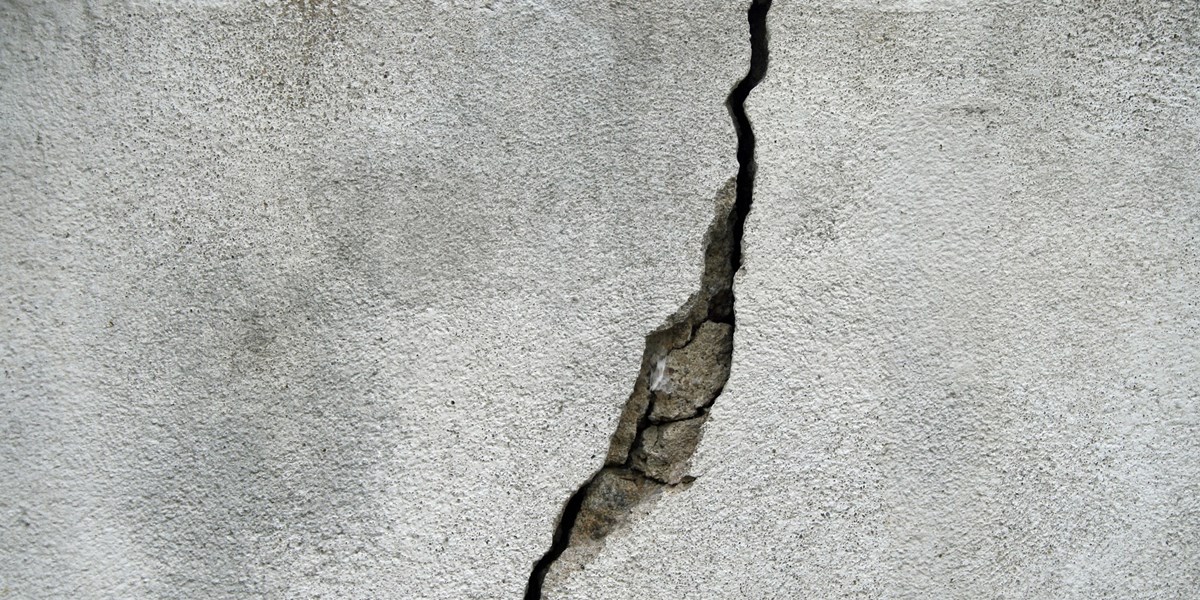What Devalues a House? (5 Things to Look Out For)

If you’re looking to sell your home, you might be curious as to what can impact the price. There are many factors that come into play when valuing your home, including several things that may decrease the Home Report valuation.
To help you understand what factors could negatively affect the value of your home, we’ve put together a list below. However, please note that this should be considered a rough guide and you should always instruct a suitably qualified surveyor to conduct a survey.
Subsidence and Structural Issues
The most obvious issue that can devalue a home is subsidence and structural issues. Sometimes, these aren’t obvious to the naked eye and may require a deeper investigation.
Subsidence is the most common type of structural issue and can reduce the value of a property by up to 20% if it’s severe. Although it’s not impossible to sell a property with subsidence, you will have to make the buyer aware.
It’s worth noting that you can get your property underpinned to prevent subsidence. This involves strengthening the foundation of your property and can be a good solution if you’re suffering from this issue. Underpinning doesn’t normally impact house price or mortgage acceptance, however, it would be advised to check this with your estate agent or surveyor.
Other structural issues that can devalue a property include things like:
Damp
Asbestos
Flat Roofs
Invasive Weeds
Invasive weeds are something homeowners often forget about too. Japanese Knotweed can devalue a property by as much as 20%, so it’s important you get these sorted as soon as possible.
Interior and Exterior Aesthetics
Exterior and interior aesthetics can have an impact on the value of your home too.
If your inside walls are falling apart with bits of wallpaper peeling off, or worse, crumbling plaster, then it won’t look good during a valuation. First impressions matter so make sure the exterior of the property doesn’t look tired either.
A fresh lick of paint and a good tidy/clean will make the place look much better during valuation and viewings. Additionally, if you can get the exterior looking good with clean windows, fresh paint, and any front path or garden repairs, you’ll be in a much better position.
Out of Date Kitchen
A kitchen has an enormous impact on the price of a property. A poorly kept or out-dated kitchen can negatively impact property price, so modernising it can go a long way.
Old-fashioned kitchens can be a big turn-off to potential buyers, so during valuation, the kitchen may not be looked at favourably. Installing a new kitchen, or making efforts to improve your existing one can be very helpful.
It’s worth bearing in mind that a new kitchen isn’t always going to increase your house price. If you opt for cheaper worktops and appliances, you could negatively impact the price, so, be mindful which kitchen you choose.
Neighbourhood Conditions
Where the home is situated is going to have a large impact on the house price. This is an obvious fact that most people realise.
If the neighbourhood has a high crime rate or if it’s noisy, the house might not realise its full potential. Additionally, if there are nearby repossessions or rundown properties, you could receive a lower valuation.
Unfortunately, there isn’t much you can do about the neighbourhood however, if there is persistent noise & antisocial behaviour you can get in touch with the local council and see if they can do something about the situation.
Poor Energy Efficiency
In this day and age, having an energy efficient home is so important. If you have a lower-than-average energy rating, you could be devaluing your property and reducing the interest from prospective buyers.
Typically, older homes can have poorer energy performance, but there are ways to improve it. Double glazed windows, insulation and a new boiler can all have a positive impact on a property’s energy rating.
Interestingly, a poor energy rating also impacts rentability. Landlords aren’t permitted to rent homes with an energy rating less than E. Therefore, it’s more important than ever to be focusing on improving the environmental friendliness of your property.
If you’re interested in seeing an energy report for your home, give us a call to request a Home Report.
Concluding
There are plenty of factors that may devalue a home so we have listed a few above that homeowners might overlook.
As experts in property, we know when something might be an issue during valuation. However, to make sure there isn’t anything reducing the value of your home, give us a call and a chartered surveyor can conduct a survey.
Alternatively, if you’re selling your home and need a Home Report, enquire using the form on this page.

Share